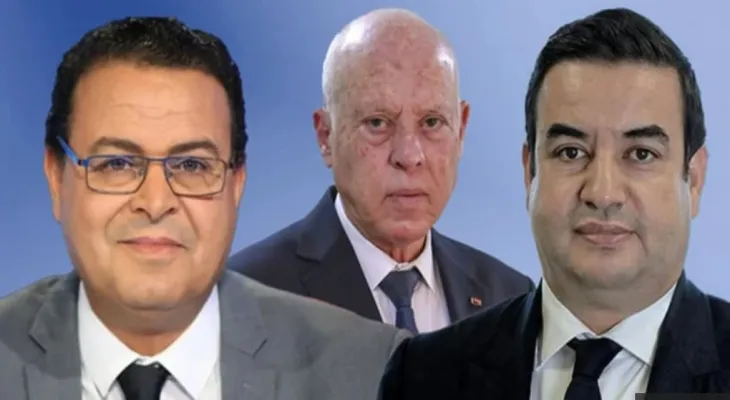Search here
Newspaper
Search here

Arab Canada News
News

Published: October 8, 2024
The Tunisian electoral authority announced that the preliminary results showed President Kais Saied won a second term in the first round of the presidential elections with over ninety percent of the votes, in an election that witnessed a low participation rate.
The official preliminary results of the presidential elections in Tunisia were announced by the Independent High Authority for Elections on Monday evening (October 7, 2024), revealing Kais Saied's victory with 90.69 percent of the voter turnout.
The candidate Ayashi Al-Zamal, who is currently in prison, came in second with 7.35 percent of the voters' votes, while Zouheir Maghzaoui, the head of the "People's Movement," came in third with 1.97 percent of the votes. The authority's data showed a voter turnout of approximately 28.8 percent.
After five years in power, Saied faces severe criticism from opponents and civil society organizations, as he has dedicated much time and effort to settle accounts with his rivals, especially the conservative Ennahda Islamic Party, which dominated political life during the ten years of democratic transition following the ousting of President Zine El Abidine Ben Ali in 2011.
Opposition figures, some of whose leaders are in prison, along with Tunisian and foreign NGOs, denounce the "authoritarian drift" through the censorship of the judiciary and the press and the harassment of civil society organizations and the arrest of unionists, activists, and journalists.
The process of accepting candidate files by the Independent High Authority for Elections faced severe criticism, reaching accusations of complete bias towards Saied when it rejected a judicial decision to readmit prominent opposition candidates.
Statistics from "Human Rights Watch" indicate that "more than 170 people are already detained for political reasons or for exercising basic rights" in Tunisia. Al-Nafathi notes the possibility of further restrictions from the authority after Saied's "crown" raised his favorite slogans on Sunday, saying in a loud voice, "We will cleanse the country of the corrupt and the corruptors."
The president of Tunisia, elected for a second term in the first round Kais Saied who has monopolized power for three years, seems convinced that he is entrusted with a "divine mission" to save his country from "foreign conspiracies."
Saied (66 years old) was democratically elected in 2019 after raising the slogan "The people want," and a wide spectrum of Tunisians expressed their joy when he granted himself full powers on July 25, 2021, to combat corruption.
Three years later, Amnesty International denounces a "worrying regression in basic rights in the cradle of the Arab Spring" and "authoritarian drift," alongside a decline in the achievements of the revolution that overthrew the late dictator Zine El Abidine Ben Ali in 2011.
Tunisian opponents and activists condemn the Tunisian judiciary's campaign against first-tier political figures, businessmen, and media personalities who tried to form an opposition front, leading to their arrest, along with the imprisonment of unionists, activists in civil society organizations, and well-known journalists.
The majority of these people remain in prison and are being tried on charges of "conspiring against the internal and external security of the state," after the president labeled them "traitors, enemies of the homeland, and terrorists."
Comments